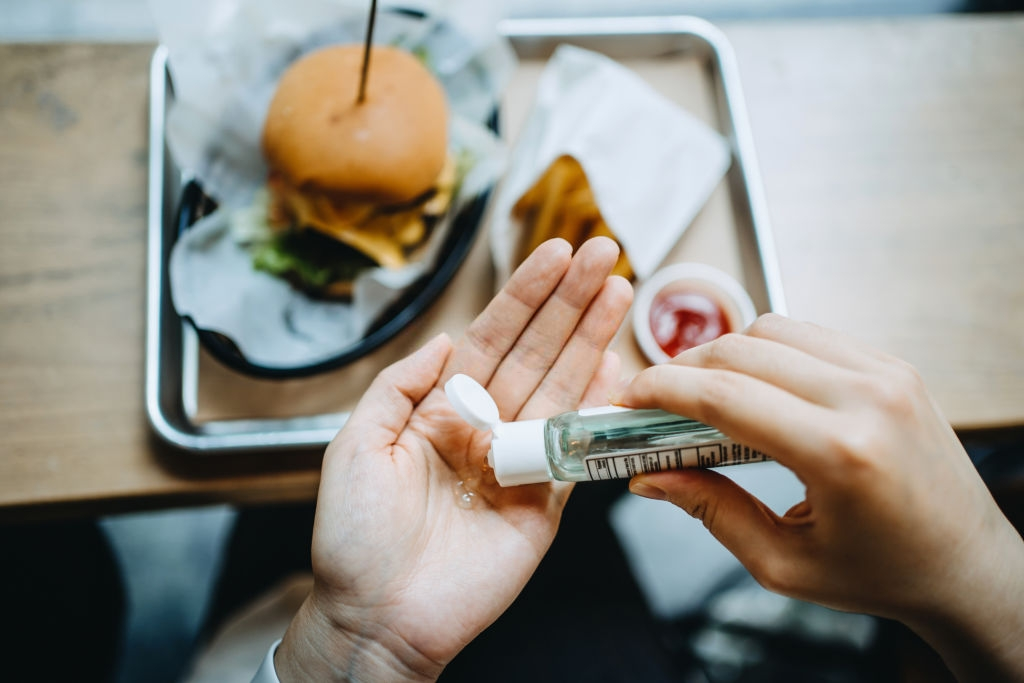COVID-19
Can The Coronavirus Be Transmitted Via Food And Objects?

The coronavirus is a respiratory virus that disperses especially through droplets formulated when infected individual sneezes or coughs, release from the nose, or through saliva droplets. Wash your hands repeatedly with soap and water to make sure that you don’t get the infection to wash them or with an alcohol-based hand rub.
Recent data on coronavirus tests demonstrate that coronavirus is durable at freezing or low temperatures for a specific duration. One needs to practice hygiene of food and decent safety practices in terms of food and other objects. These habits can curb the transmission of this virus to a great extent.
Contents
The national food safety authorities are examining more evidence for the spread of SARS-CoV-2, which causes COVID-19 on foods which are traded internationally and the apparent process of food in the communication of the virus. The ingestion of raw, frozen, uncooked, and undercooked animal products should be resisted. Raw milk, meat, and other products like these need to be dealt with utmost care to avoid adulteration with the food which is uncooked. The BFR states that there isn’t any corona spread because of food consumption but food can act as a carrier if it is contaminated.

Contamination here refers to the use of impoverished manufacturing methods. Coughing, sneezing, or its spread through smear infections leads to food contamination. To avoid transmission, a barrier is used to segregate the food staffers from the food products.
You might get infected with the virus but might not recognize it on the very first day as, by the available crucial data, the primary time for the symptoms can be up to 14 days. The clinical healing for sedentary cases takes almost 2 weeks and sufferers with severe conditions range between 3-6 weeks.
Is Food The Breeding Ground For The Virus?
Food is not likely to spread the virus as people adopt proper measures while eating like washing hands, cleaning the utensils, and cooking the food at a particular temperature which kills the virus in the process. Food is not the breeding ground for the virus. Fresh fruits should only be purchased which has very little probability of getting infected.
The packets which are in the store for long might have the chance of having the virus on it as it is lying there for long and many are visiting the store. Washing hands after touching the fruits and vegetables are mandatory. There has been no case which propagates that it spreads
through houseflies, animals, and your pets.
There is some data that talks of COVID-19 illness which leads to intestinal infection and this increases its possibility to be present in feces. Nevertheless, just one analysis has cultured the COVID-19 from a stool sample to date. There isn’t any substantial report about the fecal-oral spread of the virus. The studies have to lead the researchers to some conclusion.
The COVID-19 virus depends on temperature, humidity, and condition of surface as well. It has the potential to remain infectious in an aerosol for 3 hours, about 4 hours on a copper surface, 1 day on cupboards, and 3 days on. Stainless steel objects. To prevent the infection, disinfect your house regularly, especially the surfaces which you touch now and then. Particularly, coronavirus is tolerant to normal cooking temperatures as it is thermolabile. Raw meat needs to be cooked properly.
No cases due to the consumption of food have been reported to have caused the illness. The main risk is involved by getting in close contact with the infected person. Food manufacturers are advised to maintain proper hygiene while packaging and its dissemination. The use of cash should be avoided to the utmost extent.
The virus probably gets killed by thorough cooking. A virus could easily survive up to 72 hours on these surfaces. Any household disinfectant can kill it. A person can probably get infected by coronavirus by just touching an infected surface or an object like a table, chair, doorknob, lift, or any object which has the COVID-19 virus on it and then immediately touching your eyes, mouth or nose.
Dry cough, fever, diarrhea, and tiredness are common symptoms of the coronavirus. To avoid the immediate expanse of the COVID-19 virus, every individual must follow the hygiene measures laid forward by the World Health Organization (WHO). Wash your hands frequently with warm water and soap or sanitize it with an alcohol-based sanitizer. This will kill the virus and avoid infection which could occur by touching your face.
Avoid shaking hands and hugs. Exposing yourself to the sun or temperature higher than 25° Celsius does not kill the COVID-19 virus. Maintain social distancing of at least 1 meter. Always cover your mouth while sneezing and do not step out of your house without a mask. Remain updated with the latest news about the virus and adopt proper measures to safeguard yourself and your family.






















